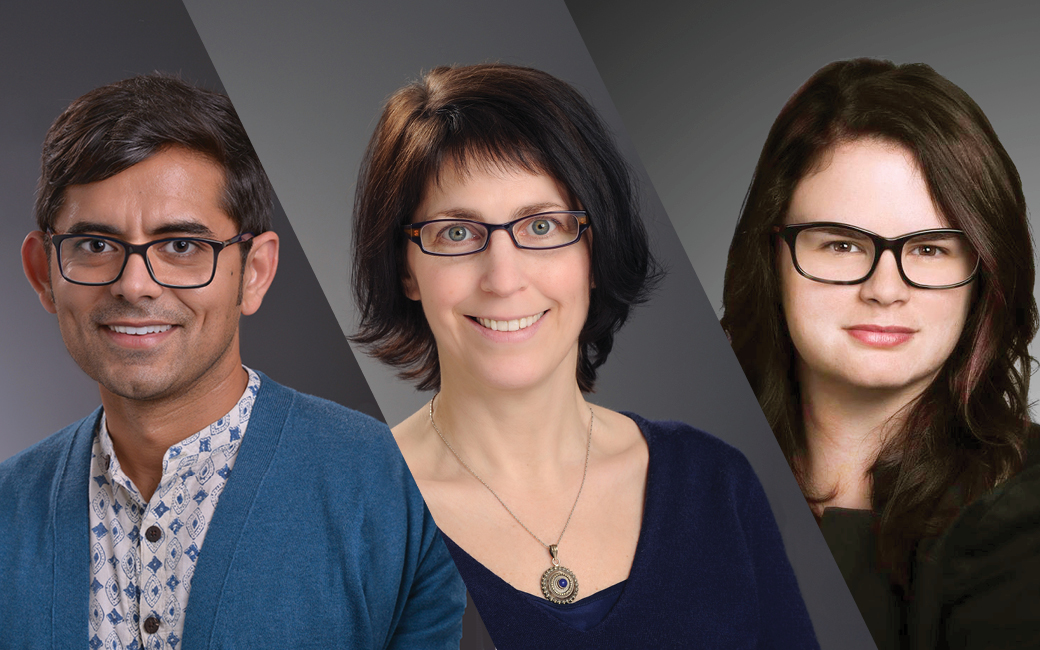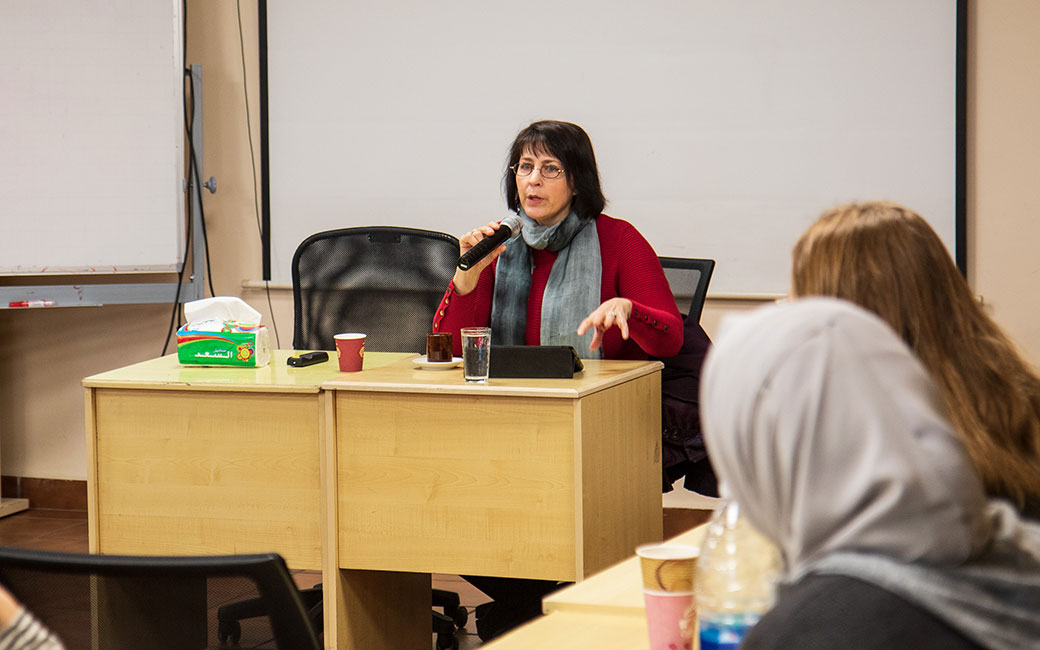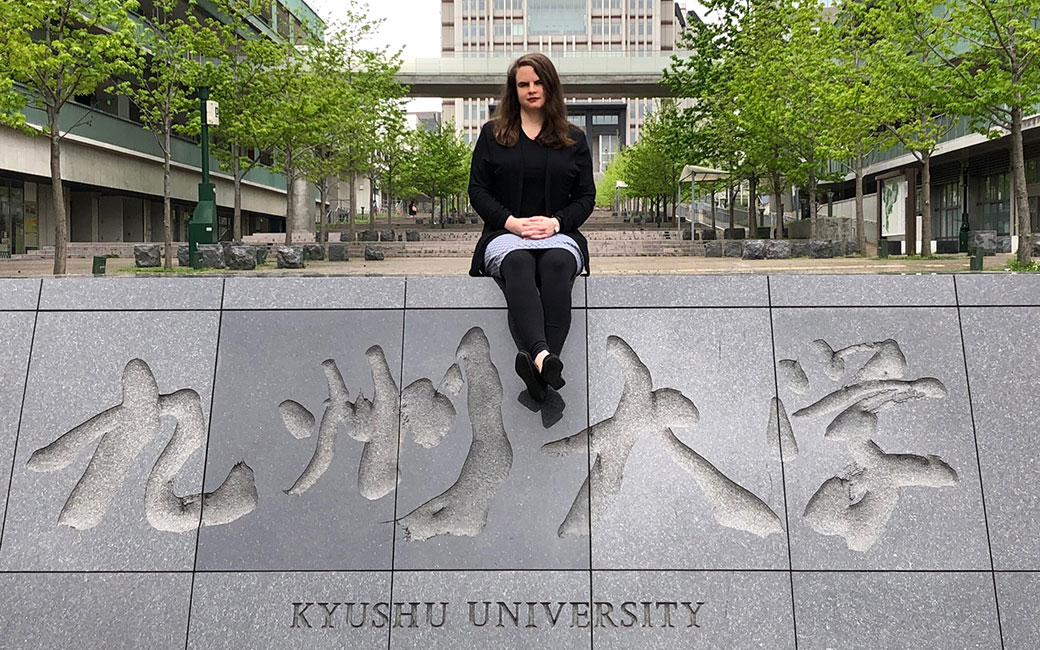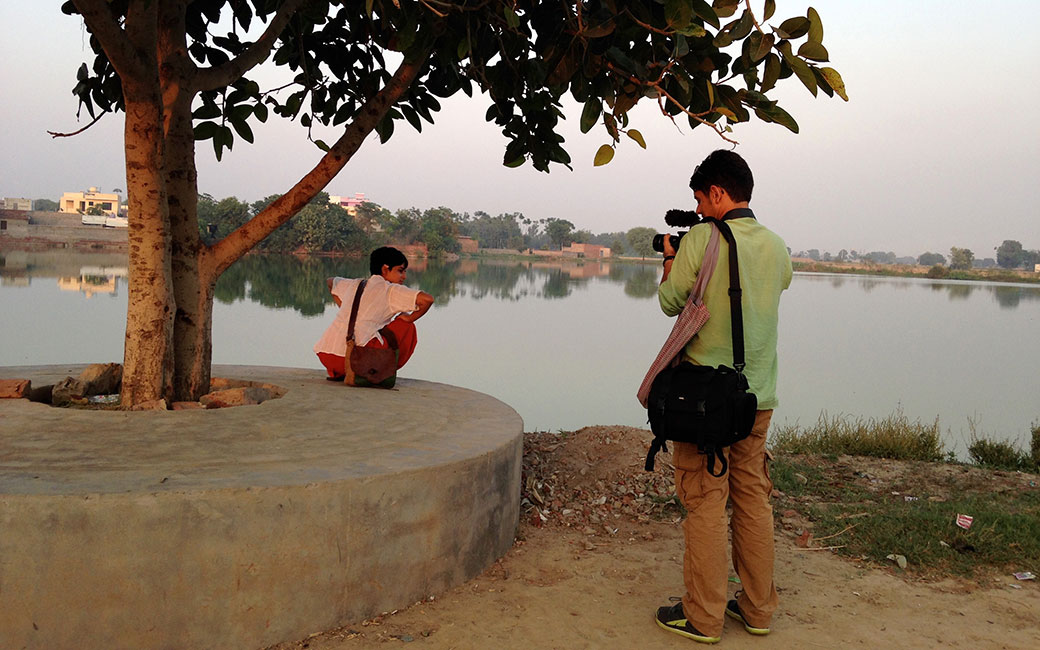TU Fulbright Scholars bring global perspectives to campus
Hear from faculty members on Fulbright grants in Jordan, Japan and India
By Rebecca Kirkman on June 20, 2019

In the past decade, more than a dozen Towson University faculty members have participated in the Fulbright Scholar Program, bringing their expertise to countries including Azerbaijan, Burma, Australia and Iceland.
The Fulbright Scholar Program sponsors U.S. and foreign participants for exchanges in the sciences, business, academia, public service, government and the arts, with the goal of increasing mutual understanding between the people of the United States and the people of other countries.
“The Fulbright Scholar Program is among the most prestigious, highly competitive recognitions of faculty excellence in the country,” says Provost Melanie Perreault. “Fulbright faculty take a semester or a year to engage in a scholarly project or teach in a foreign country, and return to TU to share their experience with colleagues and students, providing an opportunity for greater internationalization of our programs. These faculty truly are a credit to the university and we are proud of their accomplishments!”
We talked to three of TU’s most recent Fulbright scholars to learn more about the work they’re doing around the world.

Studying Border Politics in the Middle East
On a typical day as a Fulbright U.S. Scholar at the University of Jordan, Kimberly Katz spends hours poring through newspaper records and other documents from Jordan’s national, university and parliamentary libraries and archives that can shed light on her research topic, “Law and Society: Hebron under the Jordanians.”
“I’m spending a lot of time looking for legal codes, arrest records and trial records,” says Katz, a TU history professor who has authored two books on historical periods in the Middle East. “I spend a lot of time looking for newspaper articles from the 1950s to illuminate what the country and the people were facing.”
Specifically, she’s researching the postwar period from 1951-1953. “It’s a really unusual time period,” Katz says. “We’re talking about a longstanding community and also a refugee population. There’s a lot to think about in terms of how Jordan dealt with it and absorbed new territory based on the war [...] One of the interesting things I’m spending time looking at are issues of the border and border crossings.”
Katz says closely investigating the past can inform today’s political climate.
“The whole conflict in general in this area is conflict over borders, so how people saw the borders, what they thought about them, all of that is important to think about,” Katz says.
When she returns to TU from her yearlong sabbatical this fall, Katz will present her research to the TU community and at the Middle East Studies Association convention in New Orleans. She plans to publish her research in a book.
The experience will also inform Katz’s teaching of HIST 200: Introduction to Human Rights, a course that's part of a new Human Rights and History minor debuting this fall.
In addition to the Fulbright Foundation, Katz’s research and travel was supported by a grant from the American Center for Oriental Research and additional funding by the College of Liberal Arts.

Teaching Pop Culture in Asia
Becoming a Fulbright Scholar has been on Desiree Rowe’s to-do list ever since she began teaching at TU in 2015.
“I was enamored by how much they support scholars—you can go anywhere in the world and engage students,” says Rowe, an assistant professor of communication studies. “It felt like something [that], as a professor, I really needed to do.”
Rowe’s Fulbright application was rejected three times before finally being accepted for a lecturing grant at Kyushu University in Fukuoka, Japan.
“It’s ironic, because one of my research areas is failure and negativity,” Rowe says with a chuckle. But she didn’t give up, finally finding a call for scholars that was a close fit with her research areas.
She was accepted with her proposal, “Critical Investigations into American Popular Culture: Feminism, Superheroes and Reflexive Ethnography.”
At Kyushu University, Rowe teaches graduate courses in research methods and argumentation, as well as undergraduate courses in introduction to communications and communication and popular culture, exploring the ways feminism, womanism, race, sexuality and gender intersect in American popular culture.
“These are all classes that the Department of Communication Studies at Towson offers,” Rowe says, noting that she'll be teaching the pop culture course at TU this fall. “I’m teaching the same classes, but they are completely different, because I can’t teach it the same way at all that I teach at Towson. The cultural norms in the classroom, the way that students and professors interact is much different [here]. So I’m learning different ways to teach and connect with students.”
That challenge is part of what Rowe hoped to get out of the Fulbright experience. “The whole Fulbright mission is about strengthening links between the U.S. and other countries around the world, fostering global leadership in both directions,” Rowe says. “My goal is to globalize my teaching practices.”
One example so far? Learning about Japanese celebrities for her popular culture course. “If I bring up the Kardashians, they say, ‘Who?’ They aren't as popular in Japan.”

Breaking Down Gender Stereotypes in India
For the upcoming academic year, Harjant Gill will take a sabbatical from teaching at TU to carry out his research project, “Tales from Macholand: 360 Virtual Reality Documentary Series Exploring Indian Masculinities.”
The project is funded by a Fulbright-Nehru Academic and Professional Excellence Fellowship and a performing arts fellowship from the American Institute of Indian Studies.
Gill, an associate professor of anthropology, will use the project to build on his existing work, most recently a three-part documentary series on Indian masculinities that was shown on television in India and used in his visual anthropology class.
“My next idea was to incorporate virtual reality, 360-degree video,” Gill explains. “It’s a completely different way of engaging and experiencing something.”
Captured with a 360-degree camera and viewed through a headset (either the immersive Oculus Go or with a Google Cardboard viewer and a smartphone), Gill’s six-part series will feature Indian men who struggle against traditional gender roles and stereotypes of masculinity.
“There are some really interesting potentials and promises of the technology,” Gill says. “So much of what anthropology is about is transporting people into the field. Historically it’s been done through description, [where] you paint a picture of what a place is like. If the goal of anthropology is to transport the person, here’s a new technology that can actually transport you into a place.”
It’s just one example of how Gill and his colleagues at TU are pioneering the field of multimodal anthropology, which broadens visual anthropology to include virtual reality, podcasting, games, networked anthropology and more.
“Not a lot of people are using VR in anthropology yet, so I’m excited to be at the forefront of that,” Gill says.